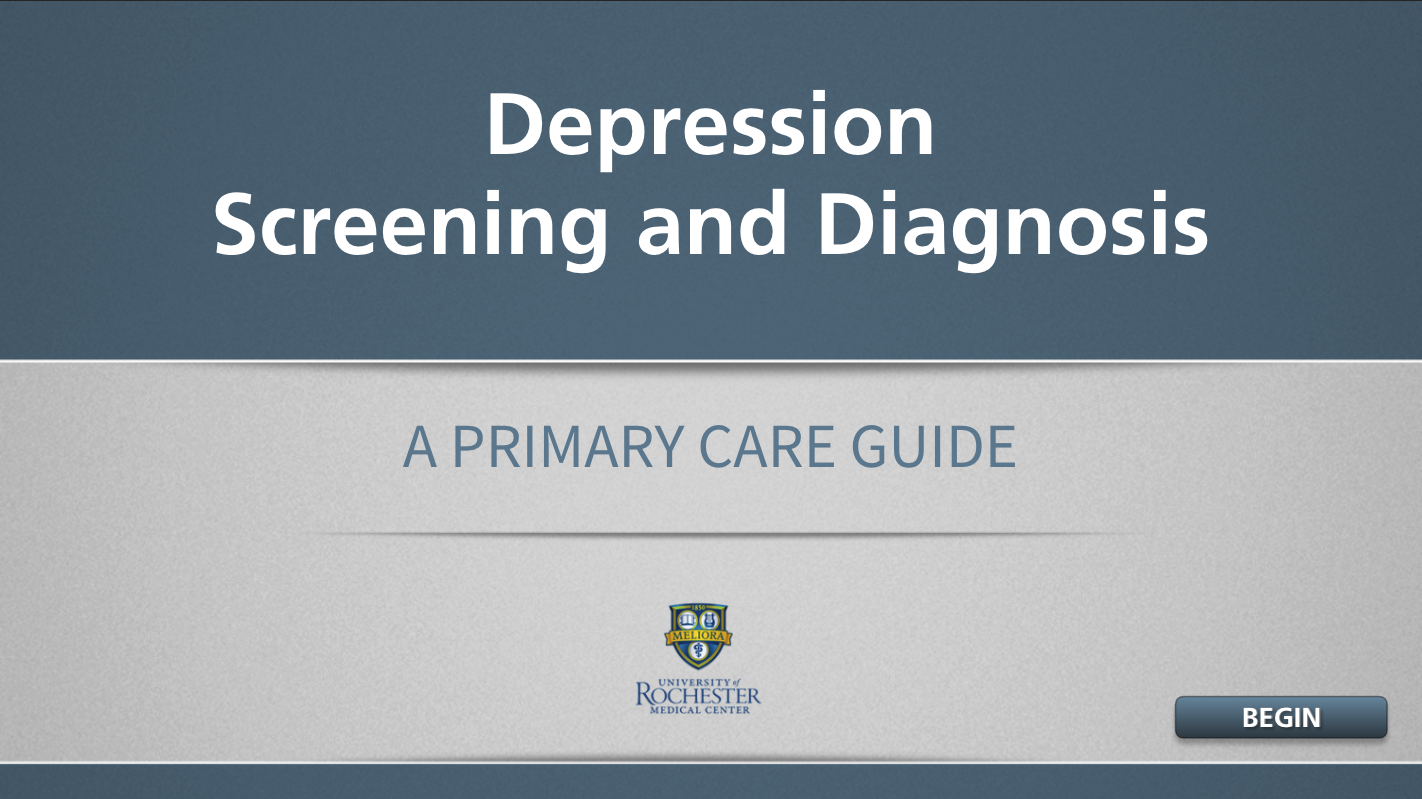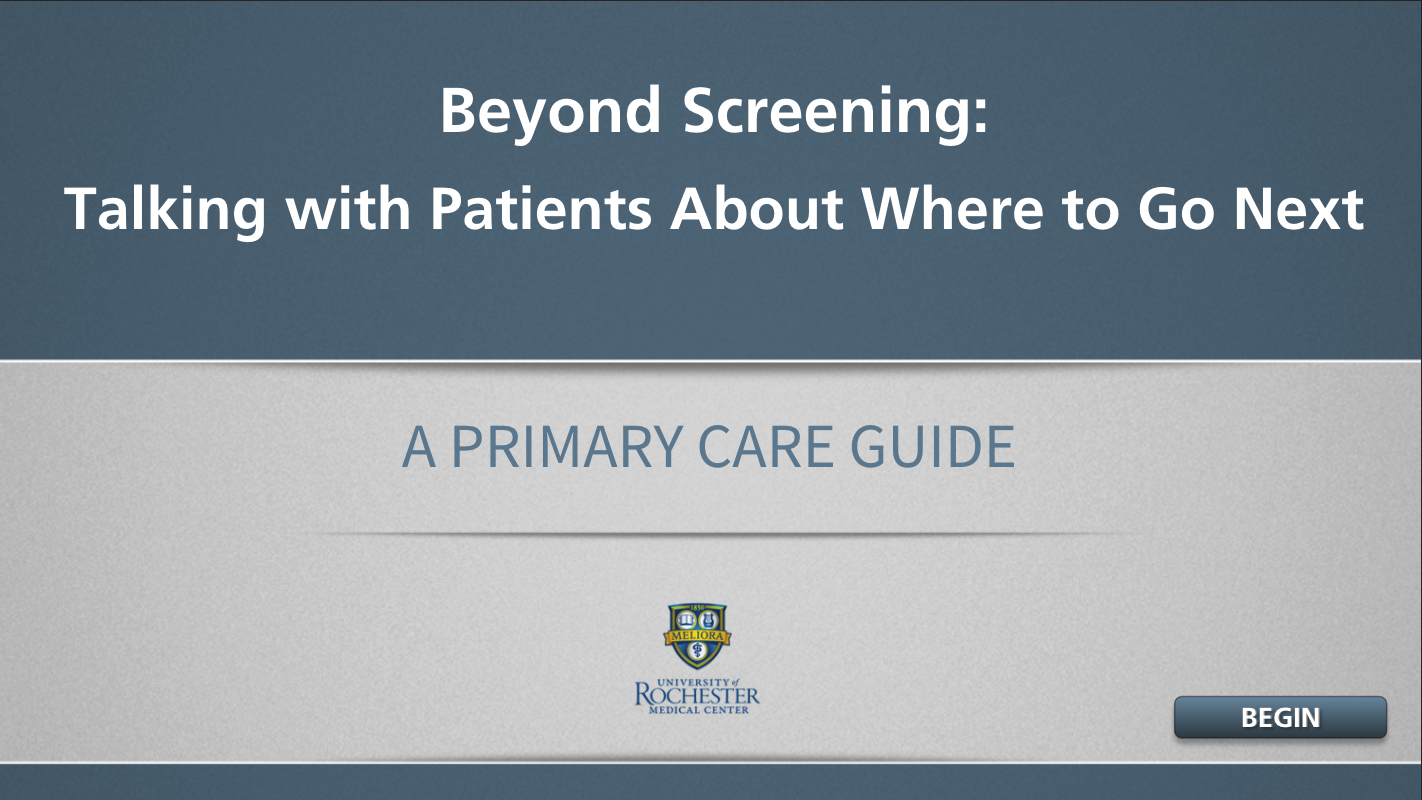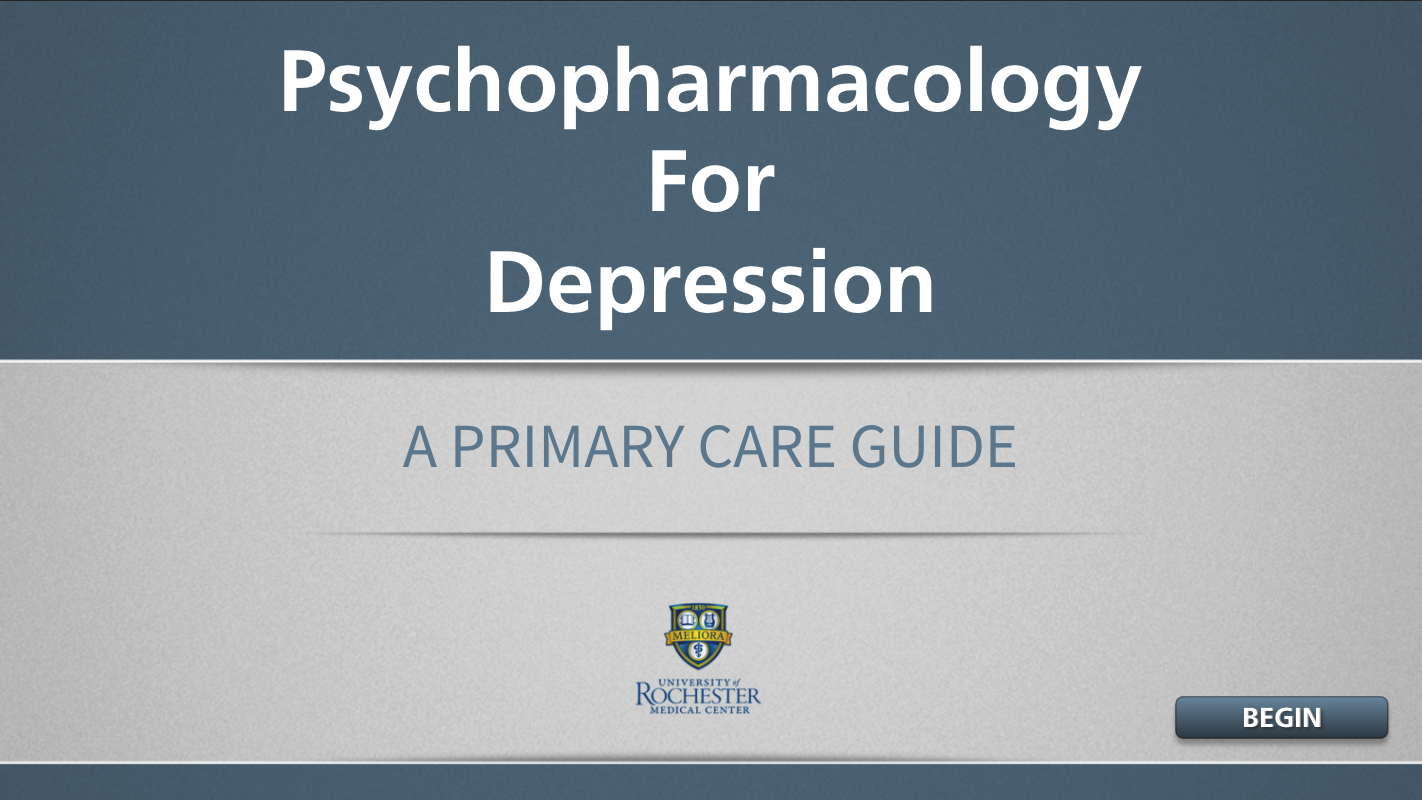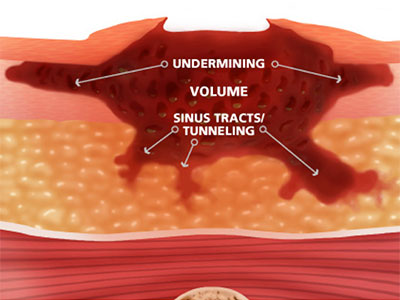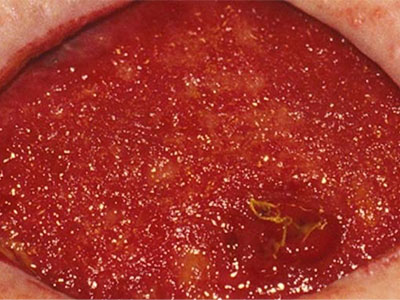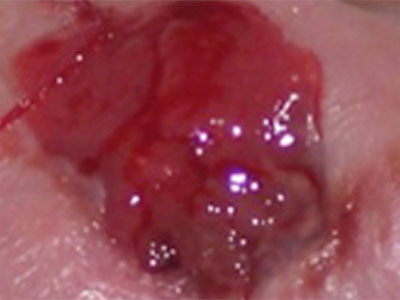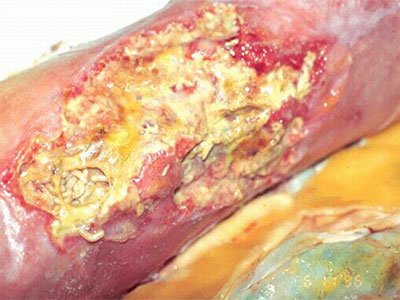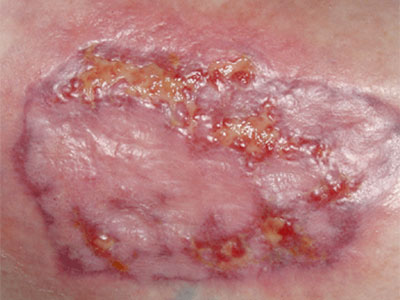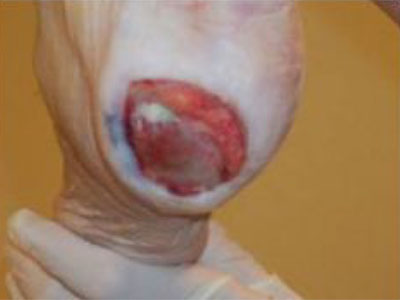Behavioral Health Training
Major Depression is one of the most common mental health conditions impacting individuals across the United States reporting severe impairment in their functioning across all domains in their life including home, work, and in the community. The likelihood that you as a primary care team member will be one of the first to recognize symptoms and begin a discussion about what depression is and how it impacts the person in front of you is high. Equipping you with the skill to detect, diagnose and manage depression seems a critical place to start. In this learning activity we discuss the diagnostic criteria for major depression to assist you in recognition of symptoms. We also talk about screening tools and how to use and interpret the results. We’ll talk through management of suicide specifically risk and response. As you know self-management is critically important and this is no different when we think about patient engagement around depression care. Content on depression self-management will be an invaluable for your skill development. Last but not least we'll discuss approaches to medication management with a focus on matching medication more specifically to depressive symptoms. We’ll talk through maximizing dosing, length of exposure to an agent that will optimize treatment for your patients.
Screening and Diagnosis Module Description
This module addresses how to identify depression and other mood disorders through the use of screening tools as well as clinical interviewing. It will differentiate between universal screening and case finding approaches and offer guidance for differential diagnosis. It will describe approaches for engaging patients and families in reviewing the screening and discussing next steps. It concludes with suggestions for shared decision making related to depression care.
Self-Management Module Description
This module addresses one of the most important variables in depression management; skills and strategies for use by patients to manage their day-to-day, as well to engage with you to keep depressive symptoms at bay. It will outline some basic principles of self-management as well as address more in-depth several domains of self-management particular to the treatment of depression and maintaining a high quality of life for patients and families who are affected by it.
Psychopharmacology for Depression Module Description
This module turns our attention to the treatment of depression using medications specifically selective serotonin reuptake inhibitors that you will use with individuals that you treat across the lifespan. This module is intended to offer guidance to you as busy primary care providers around key prescribing principles as you think about developing a treatment plan for your client who made present with some depressive symptoms.
